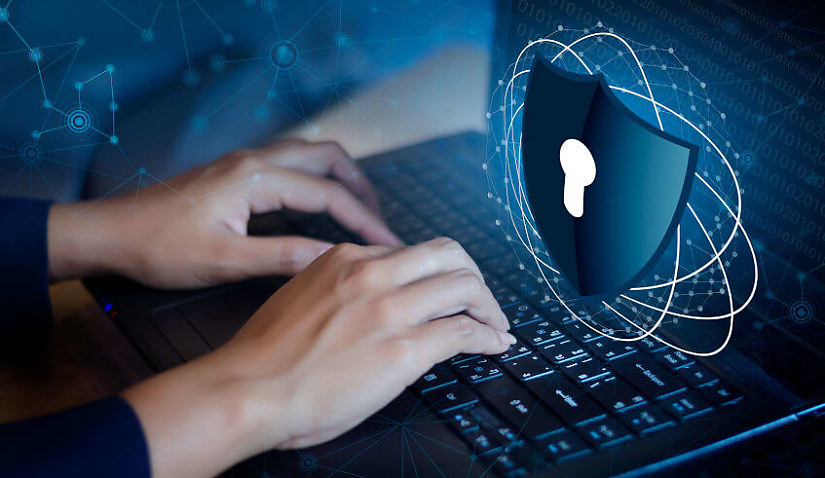Table of Contents
Key Takeaways:
- Cybersecurity lawyers play a crucial role in helping organizations navigate the legal complexities of cybersecurity, ensuring compliance with data privacy regulations, and mitigating the legal implications of cyber incidents.
- Cybersecurity lawyers understand the legal framework surrounding cybersecurity and ensure organizations comply with relevant laws and regulations. They advise on legal requirements and help develop robust cybersecurity programs.
- Cybersecurity lawyers assist organizations in ensuring compliance with data privacy laws, such as the GDPR and CCPA. They assess cybersecurity practices, develop policies, and provide guidance on breach notifications and potential legal consequences.
- Cybersecurity lawyers negotiate cybersecurity contracts and agreements, ensuring the organization’s interests are protected and appropriate safeguards are in place. They review contractual terms related to data security, liability, indemnification, and breach notification.
- Cybersecurity lawyers assist organizations in identifying potential cybersecurity threats, conducting risk assessments, and providing recommendations on mitigating risks.
- Cybersecurity lawyers help organizations develop robust incident response plans, outlining steps to be taken in the event of a breach and handling legal obligations and notifications.
- Cybersecurity lawyers play a critical role in managing the legal aspects of cybersecurity breaches, assessing liabilities, reporting requirements, and potential regulatory investigations.
- Cybersecurity lawyers address the legal implications of using AI in cybersecurity, including transparency, fairness, and accountability. They also navigate liability issues arising from AI-based cybersecurity decision-making.
- Cybersecurity lawyers assist organizations in navigating legal challenges associated with IoT security, including data privacy, consent, and liability issues.
- Cybersecurity lawyers help organizations protect intellectual property from cyber threats, develop strategies for safeguarding trade secrets, patents, copyrights, and trademarks, and secure IP assets during business transactions.
Introduction
The Increasing Importance of Cybersecurity
In today’s digital age, where data breaches and cyber attacks are becoming increasingly common, the importance of cybersecurity cannot be overstated. From large corporations to small businesses and even individuals, everyone is vulnerable to cyber threats. With the rising reliance on technology and the widespread use of the internet, the need for robust cybersecurity measures has never been greater.
Cybersecurity involves protecting digital assets, such as sensitive information, intellectual property, and financial data, from unauthorized access, disruption, or damage. It encompasses a wide range of practices and technologies aimed at safeguarding the confidentiality, integrity, and availability of information.
As the complexity and sophistication of cyber threats continue to evolve, so does the role of cybersecurity professionals. One such essential player in the field is the cybersecurity lawyer. Cybersecurity lawyers play a crucial role in helping organizations navigate the legal complexities of cybersecurity, ensuring compliance with data privacy regulations, and mitigating the legal implications of cyber incidents.
The Role of Lawyers in Protecting Digital Assets
While technology experts and IT professionals focus on implementing technical measures to protect digital assets, cybersecurity lawyers bring their legal expertise to the table. They work hand in hand with organizations to develop comprehensive strategies for safeguarding sensitive information and minimizing legal risks.
One of the primary roles of cybersecurity lawyers is to understand the legal framework surrounding cybersecurity and ensure organizations comply with relevant laws and regulations. They advise organizations on legal requirements, such as data protection laws, industry-specific regulations, and international standards, to help them build robust cybersecurity programs.
Cybersecurity lawyers also play a crucial role in risk assessment and incident response. They assist organizations in identifying potential cybersecurity threats, evaluating the legal implications of such threats, and developing incident response plans. In the event of a cybersecurity breach, they provide legal counsel on managing the breach, including reporting obligations and potential legal liabilities.
The Legal Framework for Cybersecurity
Laws and Regulations Governing Cybersecurity
In recent years, governments around the world have recognized the importance of cybersecurity and enacted laws and regulations to protect digital assets. These laws vary by jurisdiction but generally aim to prevent cybercrime, safeguard personal information, and regulate the use of technology.
For example, in the United States, the Cybersecurity and Infrastructure Security Agency (CISA) is responsible for overseeing and enforcing cybersecurity policies and practices. Additionally, the General Data Protection Regulation (GDPR) in the European Union has imposed stringent requirements for protecting personal data and has significant implications for businesses operating within the EU.
Cybersecurity lawyers play a crucial role in helping organizations navigate these laws and regulations. They assist in understanding the legal requirements, implementing necessary cybersecurity measures, and ensuring compliance with data protection and privacy regulations.
Ensuring Compliance with Data Privacy Laws
Data privacy laws, such as the GDPR and the California Consumer Privacy Act (CCPA), have gained significant attention in recent years. These laws place strict requirements on organizations that process personal data, including the implementation of appropriate security measures to protect sensitive information.
Cybersecurity lawyers work closely with organizations to ensure compliance with data privacy laws. They assess the organization’s current cybersecurity practices and help develop policies and procedures to protect personal data. They also advise on data breach notifications and assist in handling potential legal consequences of non-compliance.
Negotiating Cybersecurity Contracts and Agreements
As cybersecurity threats continue to evolve, organizations are increasingly entering into contracts and agreements with third-party vendors to enhance their cybersecurity defenses. These agreements often involve data sharing, cloud services, or outsourcing of cybersecurity functions.
Cybersecurity lawyers play a vital role in negotiating these contracts and agreements. They ensure that the organization’s interests are protected, and appropriate safeguards are in place to prevent data breaches or other cybersecurity incidents. They review contractual terms related to data security, liability, indemnification, and breach notification to mitigate potential legal risks.
Risk Assessment and Incident Response
Identifying Potential Cybersecurity Threats
One of the key responsibilities of cybersecurity lawyers is to assist organizations in identifying potential cybersecurity threats and vulnerabilities. They assess the organization’s systems, networks, and processes to identify weaknesses that could be exploited by hackers or other malicious actors.
Through comprehensive risk assessments, cybersecurity lawyers help organizations prioritize their cybersecurity efforts and allocate resources effectively. They analyze internal and external factors that may pose security risks and provide recommendations on mitigating these risks.
Developing Incident Response Plans
Preparing for a cybersecurity incident is as important as preventing one. Cybersecurity lawyers work alongside organizations in developing robust incident response plans. These plans outline the steps to be taken in the event of a breach, including communication protocols, evidence preservation, legal obligations, and notification procedures.
By involving legal counsel in incident response planning, organizations can ensure that they are prepared to handle the legal implications of a breach efficiently and effectively. This includes understanding notification requirements, managing potentially impacted individuals’ legal rights, and responding to investigations or lawsuits that may arise following a cybersecurity incident.
Managing Cybersecurity Breaches and their Legal Implications
In the unfortunate event of a cybersecurity breach, organizations face significant legal implications. Cybersecurity lawyers play a critical role in guiding organizations through the aftermath of a breach. They assist in managing the legal aspects, such as assessing legal liabilities, reporting requirements, and potential regulatory investigations.
Cybersecurity lawyers also help organizations navigate any civil litigation or regulatory enforcement actions that may arise from a cybersecurity incident. They work closely with other legal professionals, such as litigation attorneys and regulatory experts, to protect the organization’s interests and minimize legal damages.
Emerging Trends in Cybersecurity Law
The Impact of Artificial Intelligence on Cybersecurity
Artificial intelligence (AI) is transforming various industries, including cybersecurity. AI-powered technologies can analyze vast amounts of data, detect patterns, and identify potential threats in real-time. However, the use of AI in cybersecurity also raises legal and ethical concerns.
Cybersecurity lawyers are increasingly involved in addressing the legal implications of AI in cybersecurity. They assist organizations in understanding the legal requirements when using AI technologies, such as transparency, fairness, and accountability. They also help organizations navigate potential liability issues arising from AI-based cybersecurity decision-making.
Legal Challenges in the Era of IoT
The Internet of Things (IoT) has revolutionized how we interact with technology. However, the widespread use of interconnected devices also poses significant cybersecurity risks. As IoT continues to expand, so do the legal challenges associated with it.
Cybersecurity lawyers help organizations navigate the legal complexities of IoT security. They assist in addressing issues of data privacy, consent, and liability arising from IoT devices. They also work with policymakers to shape IoT-related legislation and regulations that protect digital assets while fostering innovation.
Protecting Intellectual Property in the Digital Age
Intellectual property (IP) is a valuable asset for many organizations, and protecting it from cyber threats is a top priority. Cybersecurity lawyers play a crucial role in helping organizations safeguard their IP assets in the digital age.
They assist in developing strategies to protect trade secrets, patents, copyrights, and trademarks from cyber attacks. They also advise organizations on securing IP assets during business transactions, such as mergers, acquisitions, or licensing agreements, to prevent unauthorized access or theft.
Overall, the role of cybersecurity lawyers is indispensable in safeguarding digital assets and minimizing legal risks in today’s interconnected world. Their expertise in the legal framework, risk assessment, incident response, and emerging trends is essential in ensuring that organizations can effectively protect their valuable information from cyber threats.
FAQ
Question: What is the role of cybersecurity lawyers?
Answer: Cybersecurity lawyers play a crucial role in helping organizations navigate the legal complexities of cybersecurity, ensuring compliance with data privacy regulations, and mitigating the legal implications of cyber incidents.
Question: What legal framework do cybersecurity lawyers work within?
Answer: Cybersecurity lawyers work within the legal framework surrounding cybersecurity, ensuring organizations comply with relevant laws and regulations. They advise on legal requirements and help develop robust cybersecurity programs.
Question: How do cybersecurity lawyers ensure compliance with data privacy laws?
Answer: Cybersecurity lawyers assist organizations in ensuring compliance with data privacy laws, such as the GDPR and CCPA. They assess cybersecurity practices, develop policies, and provide guidance on breach notifications and potential legal consequences.
Question: What role do cybersecurity lawyers play in negotiating contracts?
Answer: Cybersecurity lawyers negotiate cybersecurity contracts and agreements, ensuring the organization’s interests are protected and appropriate safeguards are in place. They review contractual terms related to data security, liability, indemnification, and breach notification.
Question: How do cybersecurity lawyers assist in identifying cybersecurity threats?
Answer: Cybersecurity lawyers assist organizations in identifying potential cybersecurity threats, conducting risk assessments, and providing recommendations on mitigating risks.
Question: What role do cybersecurity lawyers play in incident response?
Answer: Cybersecurity lawyers help organizations develop robust incident response plans, outlining steps to be taken in the event of a breach and handling legal obligations and notifications.
Question: How do cybersecurity lawyers manage the legal aspects of cybersecurity breaches?
Answer: Cybersecurity lawyers play a critical role in managing the legal aspects of cybersecurity breaches, assessing liabilities, reporting requirements, and potential regulatory investigations.
Question: How do cybersecurity lawyers address the legal implications of AI in cybersecurity?
Answer: Cybersecurity lawyers address the legal implications of using AI in cybersecurity, including transparency, fairness, and accountability. They also navigate liability issues arising from AI-based cybersecurity decision-making. Note: The FAQ provided above is a sample and may not cover all topics in the article.
Useful Resources:
- Cybersecurity and Infrastructure Security Agency (CISA)
- General Data Protection Regulation (GDPR)
- California Consumer Privacy Act (CCPA)
- Internet Society
- International Organization for Standardization (ISO)
- NIST Cybersecurity Framework
- World Intellectual Property Organization (WIPO)
- Open Web Application Security Project (OWASP)









:max_bytes(150000):strip_icc()/lab-grown-diamond-engagement-rings-composite-2-0423-13b76c68392444f382764bee3be76d31.jpg)